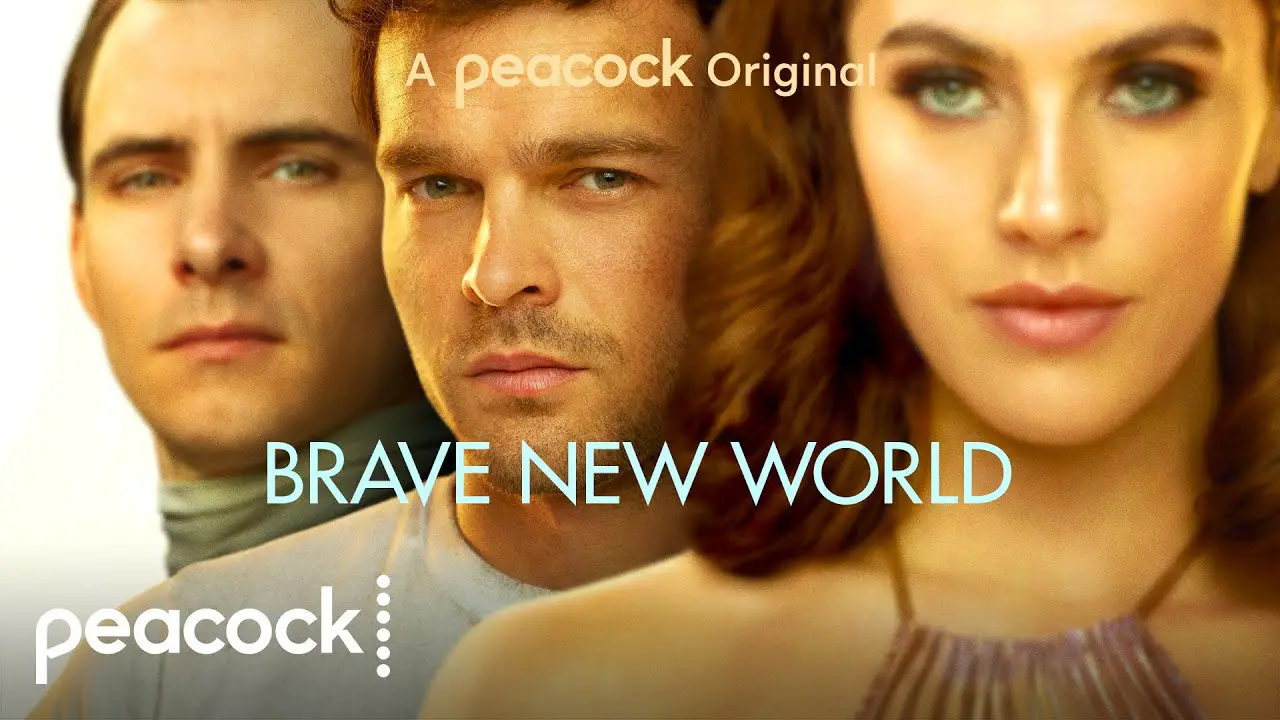Once upon a time, I used to be a book purist. Maybe I still am. If I love the book, I have a hard time with deviations from the source material, especially when, in my mind, they don’t even make sense. But Aldous Huxley‘s Brave New World is a different matter altogether.
How so? Let me count the ways.
To start with I really, really didn’t like the book. We could blame it on the fact that I had to read it for school, which is hardly ever the path one takes to loving a book, but now that I think about it, I think it probably had more to do with the fact that, despite an interesting, thought-provoking premise, the book hated me.
What I remember of Brave New World, most of all, is the misogyny. And the racism. And, you know, this idea that …even in a world that dared to flip everything upside down, those things remained. No, those things were at the center of it.

Not so brave a world, after all.
Peacock’s Brave New World first correct adaptation decision is to do away with both these things, or at least with the setup of them.
Its second is to bring a sense of humor into this dystopia – something Huxley apparently didn’t approve of, because talk about a dreary book. This world is absurd, and some of the absurd things that happen are basically a parody, and it’s only funny because, unlike the book, you get the sense the people behind this adaptation absolutely knew it.
Brave New World succeeds mostly because the above mentioned changes make it easier to focus on the message, and also because the fact that the show wants to leave open the door for a season two means the tragic ending of the novel has to be done away.
And yes, to do that, they have to make John a little more interesting.

Not too much, John was never going to be the draw, and despite a more than adequate performance by Alden Ehrenreich, he very much isn’t. Instead it’s Lenina Crowne (Jessica Brown Findlay) and Bernard Marx (Harry Lloyd) who capture our attention from the first episode, and keep it for the duration.
Ultimately, what makes Brave New World compelling is that it centers the idea of human connection – which the book attempted to do, but lost a little in all the misogyny and racism – above all things. This world that we’re seeing, it values detachment. And there are many times in our lives, especially now, when we’ve all thought detachment would be easier.
And yet, the show asks: without human connections, what are we?
This dystopia presents us with a world where inconvenient emotions – whether they be favorable or unfavorable – can be corrected via drugs, and where humans are genetically engineered to be …well, exactly what the people in charge need them to be. There’s no work hard and life will get better here. Your life is already determined for you, from the moment you are created.
Which I guess is different form our world that we still, somehow, have hope.

But the show also reinforces the idea that human attachments are what make us, well, human. In a world where nothing means anything, there might not be any real pain, but is there any real happiness? And can we, as humans, even turn off our emotions?
You already know the answer to that, not just because you feel it, but because you know what makes for an interesting show, one that is much, much better than the source material.
Brave New World is available to stream on Peacock.

